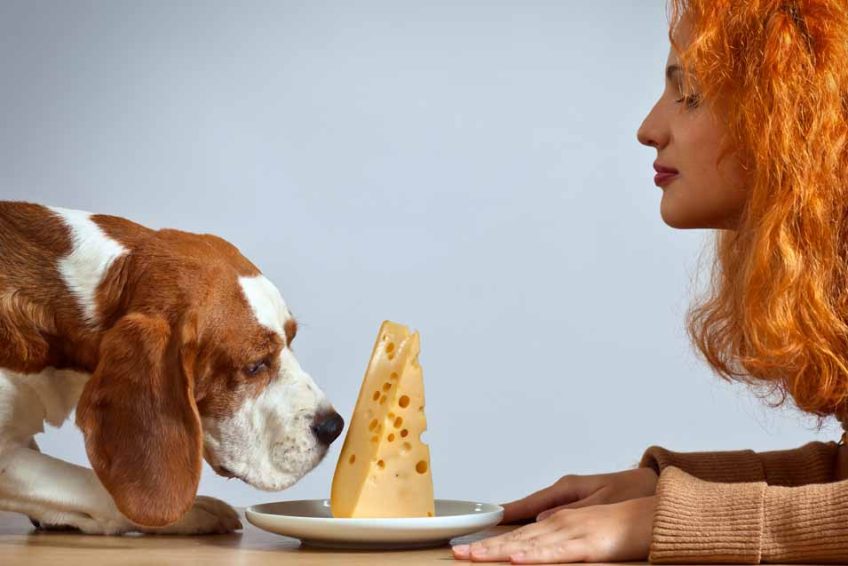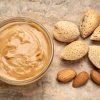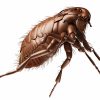Dogs have a different type of digestive system than humans. The human body digests many things easily but when it comes to dogs, it might be difficult to digest some food items. Blue cheese is a very popular food item among humans, but the question is Can Dogs Eat Blue Cheese? We thought that if we like it, then our canine buddies will like it too. But besides the taste, we can’t look at what is going on inside the body and digestive system. Blue cheese intake can create many problems in dogs including heart, kidney, obesity, and many more. So, before feeding your dog any food item, take an insight into the fact if it is suitable for your furry friends or not.
Table of Contents
What is Blue Cheese & Can Dogs Eat Blue Cheese?
Blue Cheese is another kind of cheese made from sheep’s, cow’s, or goat’s milk. It needs to be curdled and shaped into the wheels after that it is stabbed with tiny needles to add cultures of the mold Penicillium. this mold forms in the cheese, giving it it’s typical flavor, smell, and blue or green marbling. This type of cheese has its unique taste and texture which makes it famous among many people. It has a high consistency of fat, salt, and potential toxicity.
Can Dogs Eat Blue Cheese? The high concentration of fat, salt, and potential toxicity can lead to many health problems for dogs. It also contains the roquefortine C which is dangerous for dogs because of its toxic nature. The mold in the cheese is also not suitable for the dog’s digestive system as they could not digest it easily. While a small quantity of blue cheese will not attack their health soon but to sustain the good health of your dog avoid giving them blue cheese.
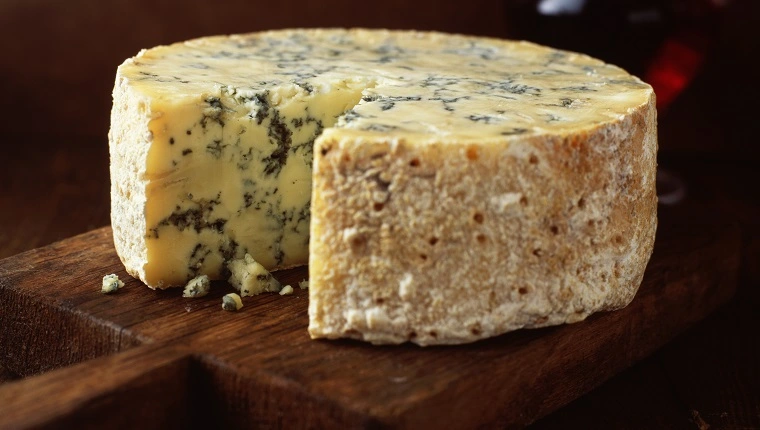
Why Blue Cheese is Not for Dogs?
A big no when you ask Can Dogs Eat Blue Cheese? But if ask why, we can give you many reasons that will clear your doubts about why it is not ideal for dogs –
1. High Fat & Salt Quantity
High salt and fat are not good for dogs’ metabolism and digestive system. It can grow some health issues related to obesity, pancreatitis, heart, and kidney. It is rich in flavors but not made for dogs. If you want to feed something delicious, tasty, and healthy to the dogs, look for something that can well with their nutritional diet and digestive demands not go with what you love to eat.
2. Toxicity of Roquefortine C
Blue cheese has a high presence of a toxic substance known as roquefortine C. Because of this toxic substance, dogs can grow symptoms like vomiting, muscle twitching, and diarrhea. It is more dangerous than you can’t even think about it. It can lead to seizures in many cases. Feed your dog not because the texture and flavors are good but because it will not harm their health.
3. Excessive Amount of Sodium
Blue cheese has high sodium content that becomes problematic for the dog’s health. Dogs can experience health problems like dehydration, strain on the heart, or high blood pressure because of the high sodium. Human has a tolerance level for sodium, but dogs don’t. You can select other foods with low sodium instead of blue cheese.
Is There Any Other Alternative for Dogs?
Of course, there are many more food items and snacks that are only made for the dogs and their nutritional demands. These alternatives are not only healthy and good for dogs’ health but also tasty at the same time. You can treat them with apples, carrots, cooked chicken, peanut butter, pumpkin puree, and many such items that are way healthier than blue cheese. All these alternatives do not have excessive fat and salt in comparison to blue cheese. It will not create any type of allergy and sensitivity to the dogs so you can rely on these alternatives.
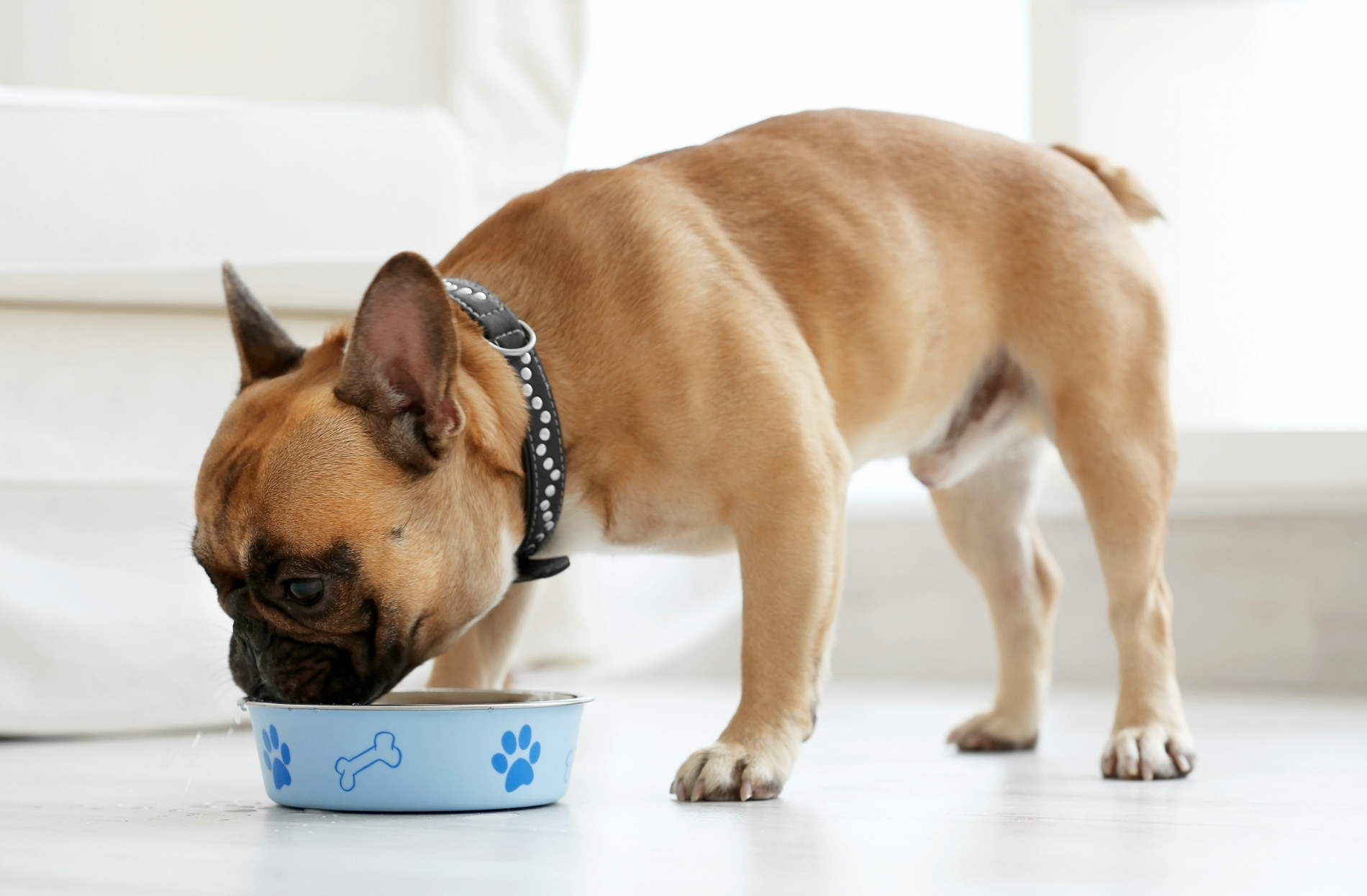
What is a Perfect Diet Balance for Dogs?
If you go to a veterinarian and ask Can Dogs Eat Blue Cheese? They will tell you the consequences of feeding a dog blue cheese. Also, they will give you the right balance of diet to feed your dogs instead of blue cheese. The veterinarian will consider some facts before giving the right balance of diet tips including the age, breed, and health of the dog.
Also, you can go with lean proteins like chicken, fish, or lamb to your dog’s diet which supports muscle building. Including fruits and vegetables like green beans, and apples will add nutrients and fiber to their diet. Always ensure that their water bowl is filled with clean water. You can accompany this diet with a regular exercise session as well.
Conclusion
So, Can Dogs Eat Blue Cheese? The answer is, of course, they can eat it, but it is your charge to take care of your furry companion. They don’t know what is best for them or what is not. They depend on you or believe their owner that they will give them the right quantity and quality of food that will not affect their health. If you want to see your dog happy and healthy then do not feed them blue cheeses. It is an extremely dangerous food item for their health. Stay aware of the facts and take care of your canine friends.
Kriti Sharma, a seasoned content writer, my passion for words fuels my writing journey. Armed with a knack for storytelling, I thrive in crafting engaging, informative, and persuasive content. My expertise spans various niches, from technology and business to travel and wellness. I bring versatility to the table, adapting my tone and style to suit each project’s unique needs. Whether it’s an insightful blog post, a compelling marketing copy, or an in-depth research article, my commitment to quality and authenticity shines through. Join me on a literary adventure as we explore the power of words together.

